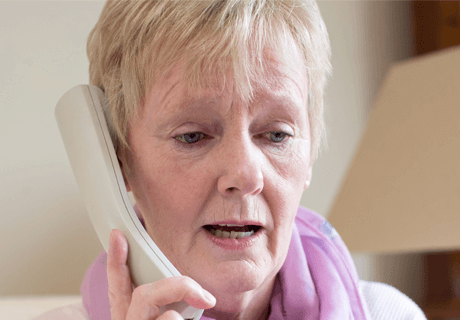Blog
What restrictions lifting means for people affected by cancer
10 June 2020

With restrictions easing and the world slowly starting to return to its pre-COVID-19 state, it is understandable to have questions and concerns about what this return to ‘normal’ means for cancer patients, their family and friends.
The precautions you will need to take as restrictions lift will vary depending on your individual circumstances so it’s always best to discuss your individual circumstances and the level of risk posed with your treatment team. They will be able to provide you with advice to help you to remain safe throughout COVID-19, in particular as restrictions ease.
We’ve answered some common questions around what the lifting of restrictions might mean for people living with cancer, their family, and friends.
Am I more at risk now that social distancing rules have relaxed?
Your level of risk will depend on your individual circumstances and factors so your treatment team will be able to provide you with the best advice about the level of risk to you.
If your immune system is compromised, it is likely your treatment team will recommend that you continue to self-isolate as much as possible to keep yourself safe.
If your treating team inform you that you are not at a higher risk, following the government’s recommendations will still be essential in helping to reduce the spread of COVID-19, including maintaining a 1.5m physical distance, and practicing good hygiene habits regularly. We also recommend downloading the COVIDSafe app.
Should I allow family and friends to visit?
The decision to see loved ones will be a person choice. You may need to consider the risk posed to you, and how at risk your family and friends might be of having been exposed to COVID-19. It is recommended you talk to your treatment team about what will be the best option for you to keep yourself safe.
Having open and honest conversations with your loved ones at a time like this will be even more important than usual. Let your friends and family know what you do and don’t feel comfortable with so that you can have clear boundaries and expectations. Maintaining your mental health is also important for your wellbeing so considering who is part of your “bubble” and whether extending that slightly will help to manage your emotional wellbeing is also an important consideration.
If your treatment team advise that visiting with family and friends is ok, then you should still be strict about maintaining a 1.5m physical distance, ensuring you and your visitors wash your hands thoroughly, meeting outside or in a well-ventilated place, downloading the COVIDSafe app, and also encouraging your friends and family to do so too.
If self-isolating remains the best decision for you, our FAQ ‘How do I cope with being isolated’ also has some tips and advice for staying in touch while you continue to self-isolate. You can also call our information and support line on 13 11 20 for practical tips and advice.
What additional precautions can I take?
Following the government’s recommendations will be essential in helping to reduce the spread of COVID-19. Other additional precautions continue to include:
- Maintaining 1.5m physical distance.
- Washing your hands with soap and water for 20 seconds or if not available, an alcohol-based hand rub.
- Avoiding touch your eyes, nose and mouth.
- Cleaning and disinfecting frequently touched objects and surfaces.
- Downloading the COVIDSafe app and encouraging family and friends to also do so.
If you are concerned or are notified by the COVIDSafe app that you may have been exposed to COVID-19, you should call your treatment team immediately.
Self-isolating is challenging, and our 13 11 20 information and support hotline is available for you to talk to one of our trained staff about any practical or emotional support you may require during this difficult time.
Tags

